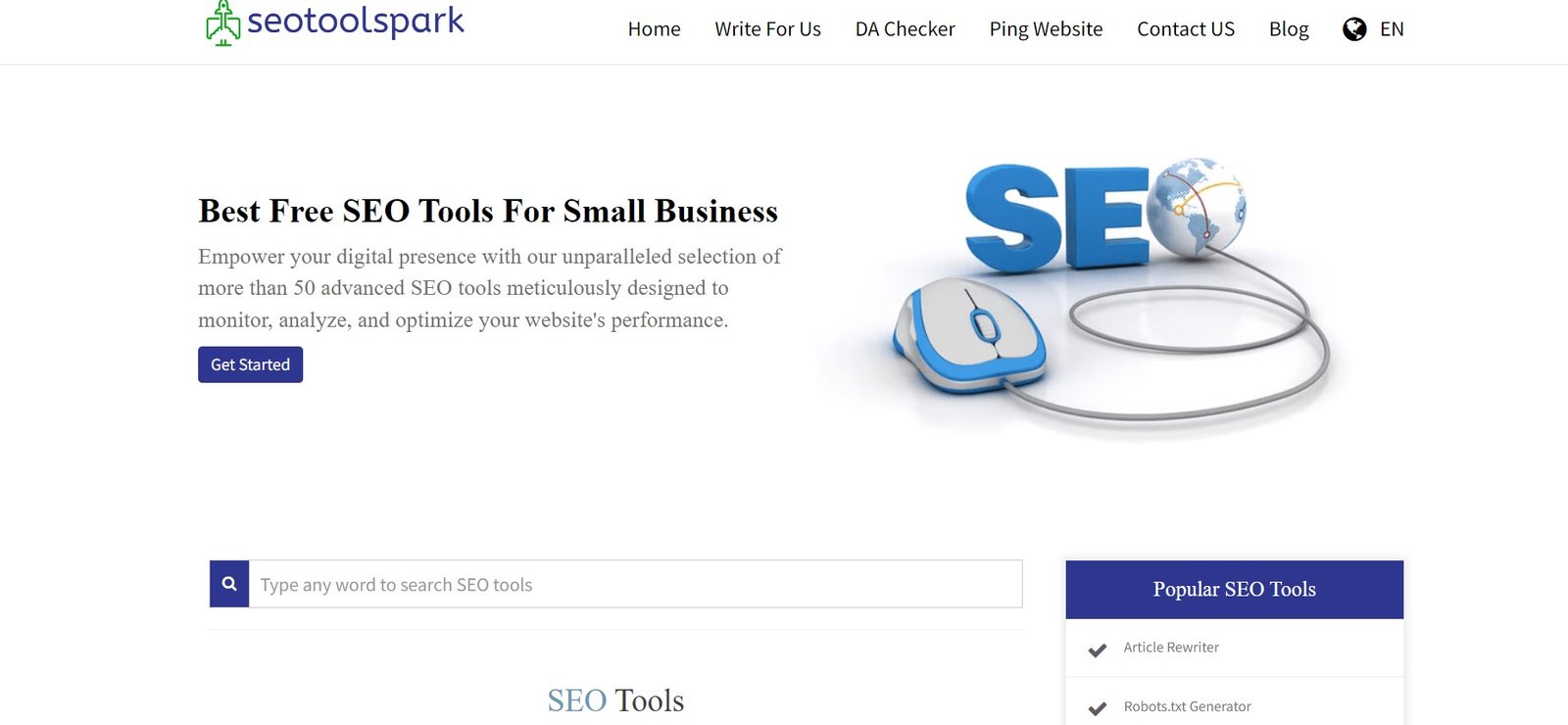


Wondering how to check your website's search engine ranking position? Want to track your site's SEO performance and keyword rankings?
You've come to the right place. In this comprehensive guide, we'll show you 10+ tools and methods to check your site's SEO ranking by checking your keyword position in Google and other search engines.
Whether you want to monitor rankings for target keywords or backlink monitoring, identify SEO issues, or benchmark against competitors, we've got you covered.
By the end of this article, you'll know exactly how to check your website's search engine rankings like a pro!
Before we dive into the various tools and techniques, let's quickly go over why you should regularly check your site's SEO rankings:
Clearly, regularly checking rankings is crucial for monitoring SEO progress and making data-driven optimization decisions.
Now let's look at the various methods for checking your website's search engine positions.

Google Search Console (previously Webmaster Tools) provides the most accurate rankings data for your site. It shows estimated keyword rankings right inside your Search Console dashboard.
To check rankings:
The downside is Search Console only shows rankings for terms that received impressions. So it won't display data for new keywords you want to target. Still, it remains one of the best free tools for monitoring existing rankings.

SEOToolsPark is an incredibly powerful SEO and marketing suite. It provides rank-tracking capabilities for keywords you want to monitor.
To use SEOToolsPark for rankings:
The benefit of SEOToolsPark is it allows you to track ranking for new focus keywords. You aren't limited to terms already ranking in the Search Console. It also lets you track rankings on Bing and country-specific Google domains. The rank tracking tool is very versatile for monitoring SEO performance.
Similar to Semrush, Ahrefs is an extensive SEO platform that offers rank-tracking capabilities.
To use Ahrefs for checking rankings:
Ahrefs provides excellent rank data for keywords you explicitly want to monitor. It even shows historical Google discontinuities caused by ranking algorithm updates.
The accurate rank tracker integrates directly with Site Explorer to make adding and managing keywords easy. Like Semrush, Ahrefs gives you more flexibility than Search Console alone.
Moz Keyword Explorer is great for discovering new keyword opportunities. And it provides limited rank-tracking capabilities.
To check rankings with Moz:
Moz shows approximate rankings based on its own index, so positions may differ from Google. But it's a handy free alternative for basic rank-tracking needs.
You can manually check rankings for a specific keyword by searching it on Google and browsing through the results pages.
Obviously, this can be extremely tedious for monitoring multiple keywords. But for quick one-off checks, it works fine. Just be sure to open an incognito browser so your personalization doesn't influence rankings.
There are various SEO site explorer tools that allow you to enter a domain and see its ranking for any keyword.
For example:
These provide a handy way to check a site's ranking for both existing and new keyword targets. Some also show competitors' positions for comparison.
Most offer a limited number of free searches per month. Moz and Majestic have paid offerings with more features too.
Another option is SERP analysis tools that allow you to enter a keyword and view the top-ranking pages for that term. Some examples:
These tools crawl Google results pages and show you the exact ranking sites for a given term. They provide an easy way to check rankings from your browser.
Just be sure to open in incognito mode and beware these tools obey robots.txt so some sites may not be crawled. But overall they work well for quick manual checks.
Dedicated rank-tracking software is built specifically for monitoring keyword rankings.
Popular rank tracker options:
These tools allow you to enter target keywords and track their ranking positions over time. Many integrate with other SEO tools for easy rank analysis.
They provide automated, accurate rank data saving you manual checking time. Robust rank tracking is essential for professional SEO agencies.
Advanced Google search operators like sites: can also help check rankings.
For example:
site:yourdomain.com keyword Shows pages on your site ranking for that keyword.
site:yourcompetitor.com keyword Check where a competitor ranks.
You can then browse through the results to see the highest-ranking page.
Other useful operators like in url: and in title: help filter and analyze rankings right in the SERPs.
Again this is manual and limited, but helpful for quick checks. Learn more about Google search operators.
Alexa shows overall website popularity ranks based on its global traffic data. While not specifically SEO rankings, Alexa rankings give a general sense of site authority and visibility.
It can be a useful benchmark, particularly for informational authority sites that rely more on overall domain authority vs. keyword rankings.
Just keep in mind Alexa data is not completely accurate so treat these general rankings as a rough estimate. Other tools like SimilarWeb and SEMrush provide similar overall popularity and traffic ranks.

When monitoring rankings, keep these tips in mind to get the best data:
Accurate, consistent rank tracking takes effort. But it's the only way to truly gauge your SEO results over time. With that you must track your website Domain Authority it is also called DA. Check your DA now with the DA checker.
A) For competitive keywords, a good goal is ranking in the top 3-5 organic search results on page one. Ranking #1 is ideal but not always realistic. Anywhere on the first SERP page is reasonably good for high-traffic keywords.
A) Google Search Console provides free keyword ranking data. Manual checks in Google itself also work. Or use free rank checker/SERP analysis browser extensions like MozBar. While limited, these free options can monitor keywords already ranking for your site.
A) Yes, manually searching keywords in Google and browsing through the SERP pages allow you to check ranking without any tools. This is tedious for more than a few keywords though.
A) Search engines customize results based on user behavior and location. So rankings can vary slightly by tool and geographic location. Moz and Ahrefs also use their own search index which differs from Google's live results. Look at overall trends rather than exact positions.
A) Ideally, check search rankings weekly or monthly to monitor ongoing progress. Daily checks are overkill for most sites. You want sufficient data to analyze trends over time.
A) Google Search Console displays local pack rankings if your site appears for local keywords. Local rank trackers like Moz and BrightLocal also check map pack results. Or manually search local keywords on Google Maps.
A) Yes, rank-tracking software automatically checks rankings for your list of keywords on a schedule. This saves time vs. manual checking. Most SEO platforms like Semrush, Ahrefs, and Moz include automated rank-tracking capabilities.
A) Leading rank-tracking tools include SEMrush Rank Tracking, Ahrefs Site Explorer, Moz Pro, Rank Ranger, SEOToolsPark, and SERP Tracker. Choose one that fits your budget and required features.
Take the guesswork out of SEO with consistent search ranking tracking. Now you have a full arsenal of tools to accurately check your website's SEO rankings by checking your keyword position through keyword position checker and measuring your search visibility.
So what are you waiting for? Start picking some of these options to keep your finger on the SEO ranking pulse. Monitor your site's progress over time. See which pages and keywords are climbing or falling. Identify issues and opportunities.
Accurate rank-tracking data powers smart SEO decisions and strategies.
Regularly monitoring your website's search engine rankings is a crucial part of any SEO strategy. With the 10+ methods outlined in this guide, you have all the tools you need to accurately track keyword positions in Google and other search engines.
Choose the options that best fit your budget, keywords, and needs. Use both manual checks and automated software to get a complete rankings picture.
Armed with the right rank data, you can understand your SEO progress, set targets, identify issues, spot competitors, calculate ROI, and make smart optimization decisions.
Accurate rank tracking takes some effort but pays major dividends in the form of higher SEO visibility, more organic traffic, and new business opportunities. Start keeping a close eye on those coveted first-page rankings!